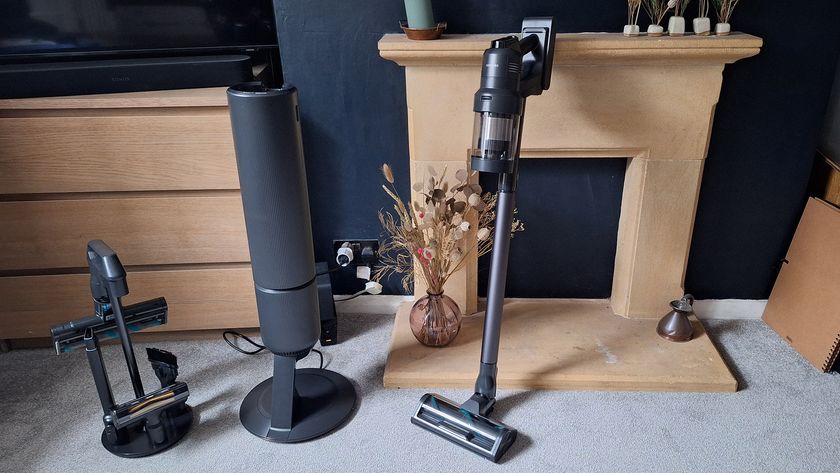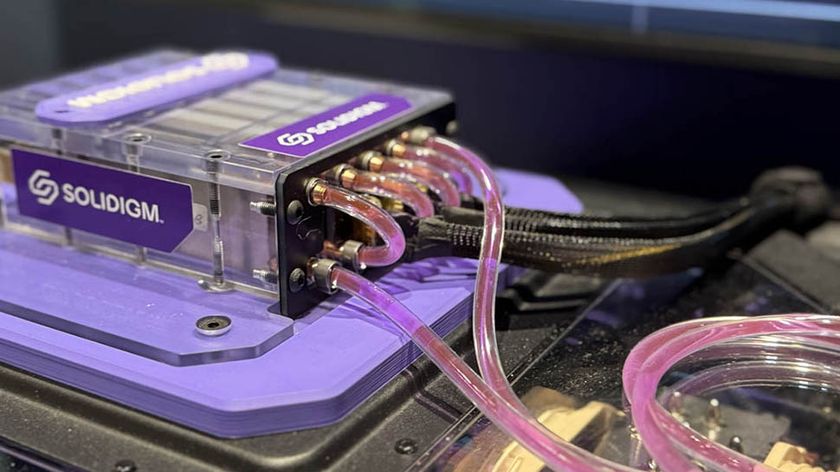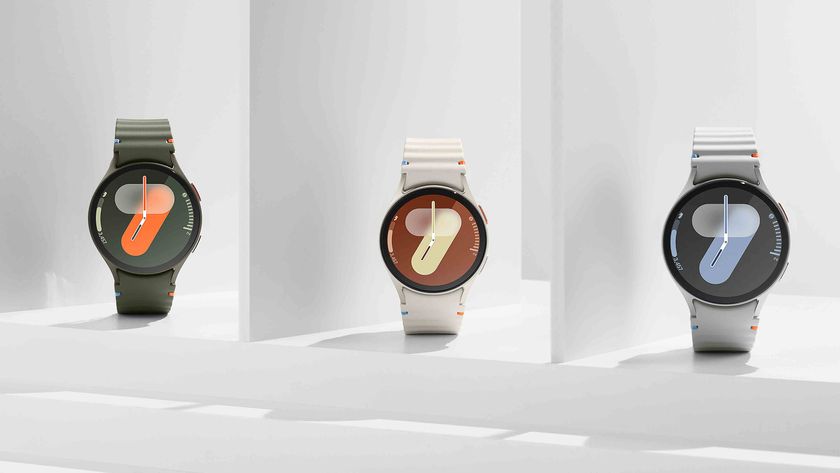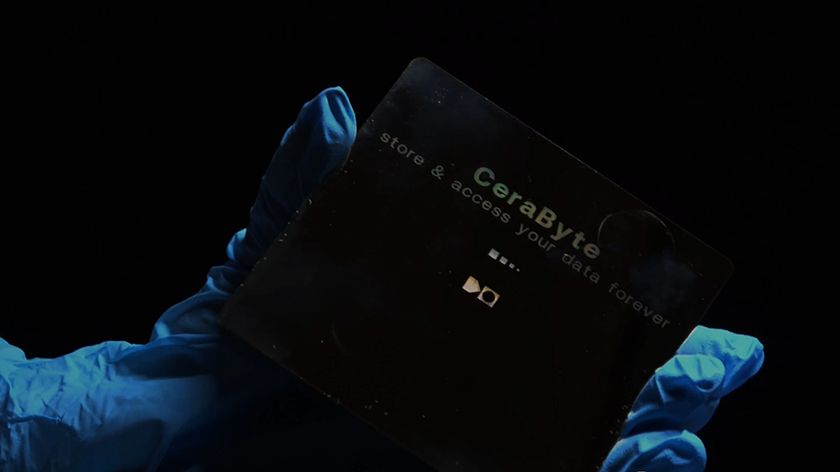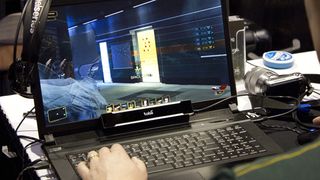
SteelSeries Sentry eye tracker
In case tracking your head and hands wasn't enough, SteelSeries has developed eye tracking technology in collaboration with Tobii Technology. Originally designed to help disabled users operate a computer without using their hands, SteelSeries is now adapting the technology into a gaming peripheral called Sentry.
So far, the Sentry eye tracker has been used to give eSports fans a sense of the action by letting them see how the Pros play. Sure, broadcasting games is as easy as taking the footage from players screen, but it's impossible to capture the hand and eye movements of a skilled gamer. SteelSeries hopes to use Sentry to add another layer to the streaming experience by highlighting exactly what part of the screen the player is looking at.
Sentry could bring even neater tricks in the future. When the eye tracker was first introduced, SteelSeries suggested the device could be used to control in-game features such as selecting items and controlling the camera.
The idea sounds extremely intuitive as you're already locked on a screen when playing a game, so it makes sense to turn your eyes into yet another controller. The Sentry isn't available yet, but SteelSeries has plans to bring the peripheral to the consumer market. For now only time will tell whether or not this idea truly takes off.

Leap Motion
Out of all these technologies, Leap Motion is the only one to see mass distribution thus far; the motion-tracking sensor made its way into the world thanks to KickStarter and HP Envy laptops.
Unlike Kinect and other motion sensors, Leap Motion isn't exactly a camera. Instead, it's a sensor pointed towards the sky that creates a virtual space in which you can move your hand to control applications and play games. Leap Motion can visualize your hand as a skeleton, identifying each joint, which makes it fairly neat to seek your bones outlined on screen in neon colors.
Unfortunately, you can't just start flicking through Windows 8.1 menus with the motion-sensing peripheral. Leap Motion has a specific set of compatible applications in its Airspace suite, which allow you to swing your fingers around in games like Fruit Ninja or manipulate Google Earth as if you were handling a real globe in your palm. It's another step towards immersive technology and could make using computers feel a little less disconnected as it is with a keyboard and mouse, though it will need to work with more applications to truly take off.
Get daily insight, inspiration and deals in your inbox
Sign up for breaking news, reviews, opinion, top tech deals, and more.

Cortana
The Star Trekian future is nearly here. While we've been barking orders at our smartphones since Siri popped onto the scene with iOS 5 in 2011, Cortana will be the first, real virtual assistant on computers.
The Halo-inspired personal assistant is baked right into Windows 10, and Microsoft promises it will be smart enough to learn more about users over time. Creepy as that might sound, the hope is your computer will eventually be smart enough to set your appointments or prod you when you forget to put reminders into OneNote. Of course, you can also direct Cortana with straightforward commands such as searching for queries and starting a Skype call.
There is a growing crop of new control schemes popping up. Gaming is no doubt helping to push this trend, with the Kinect and Wii driving interest in motion-controlled gaming. Meanwhile, PCs are become increasingly integrated with our living rooms, where it's simply not fun to balance a keyboard on your lap while you recline on the couch. Keyboards and mice work great at a desk, but they're days elsewhere are looking numbered.
Kevin Lee was a former computing reporter at TechRadar. Kevin is now the SEO Updates Editor at IGN based in New York. He handles all of the best of tech buying guides while also dipping his hand in the entertainment and games evergreen content. Kevin has over eight years of experience in the tech and games publications with previous bylines at Polygon, PC World, and more. Outside of work, Kevin is major movie buff of cult and bad films. He also regularly plays flight & space sim and racing games. IRL he's a fan of archery, axe throwing, and board games.



